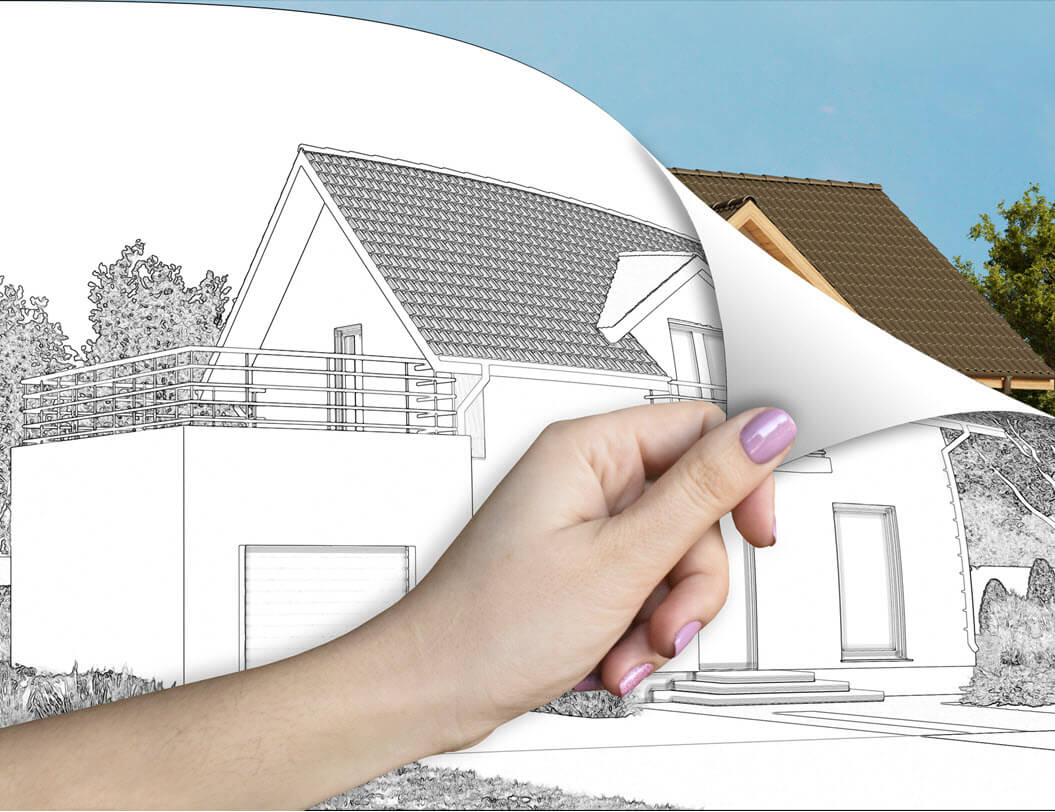Considerations When Flipping Houses
Home Financing

If you've watched any house-flipping shows on TV, the prospect of buying and selling homes for profit can be alluring. Keep in mind that what you see on the screen may not be the full story. Here are some things to consider before you buy a house to flip.
Before You Get Started
If you think house-flipping may be for you, ask yourself these questions before getting started:- How is my credit? Unless you're paying for each house in cold cash, you'll need to have a good credit score to qualify for mortgages on the homes you'll be flipping. If you're not there yet, work on raising your score before launching a house-flipping business.
- Can I afford the down payment? You'll also need to have a large amount of cash available for your first down payment. The more you can drop on a house, the bigger chance you have of winning a bidding war.
- Can I handle a delay or a loss? You might sink $40,000 into a house and then watch in horror as it sits on the market while refusing to sell. You might buy a house in an up-and-coming neighborhood, but the market promptly falls apart as soon as you close. Hopefully, you'll only see success, but you'll need to be emotionally and financially prepared for unpleasant surprises.
5 Steps to Starting a House-Flipping Business
Are you ready to flip some houses? Follow these steps to get your business up and running!Step 1: Create a Business Plan
Sit down and write up a business plan before making any other moves. Outline your goals, delineate the number of projects you can realistically manage over the course of a year, create timelines for each project, build a marketing strategy, and determine a financing source for your business. Get as detailed as possible for optimal success.
Step 2: Acquire Financing
The simplest way to flip a home is to acquire the entire property with cash. But, if you don't have access to such huge sums of cash, you'll have to secure financing.
Step 3: Find the Right Group of Professionals
If you're super-handy around the house, you can rehab the homes yourself. Otherwise, you'll need to hire a group of professionals to help you succeed at rehabbing the houses you intend to flip. You'll also need to seek counsel from attorneys and others who are well-versed in local laws to make sure your house is up to code and that you have all the necessary permits for construction projects. Take your time researching and hiring the right group of professionals, as a smart choice now will save you loads of money and time down the line.
Step 4: Find Your Property
Once you have your business plan, financing and group of professionals in place, you're ready to look for your first property. But where do you start looking?
To avoid buying a home in a less-than-desirable neighborhood, check out factors like crime rates, desirable schools, and the number of foreclosures in any neighborhood you're considering.
The best way to find homes is to trundle around a neighborhood, look for vacant houses, and then send the owners a letter, asking if they're willing to sell. You can find properties for sale at auctions, on home-searching sites like Zillow and Realtor.com, or by driving around your chosen neighborhood and scouting out For Sale signs. It's best to have a licensed inspector check a potential home for structural problems and deficiencies before you close.
Step 5: Buy, Rehab, Market, and Flip
Once you've found a potential house to flip, use the "70% Rule" to determine if it's a worthwhile proposition. The 70% rule states that an investor should pay no more than 70% of the ARV (after-repair value) of a property minus the repairs needed. If you follow this rule and all works out, you'll walk away with a sizeable profit.
As soon as your purchase is finalized, the clock starts ticking. Every day you own the home is another day you need to pay the mortgage. If your doing the rehab yourself, get ready to start as soon as you close. Otherwise, have your team of professionals prepared to begin their work as soon as the home is yours. Depending on the condition of the home, this can take anywhere from several weeks to several months. During this time, be sure to check periodically that all renovations are up to code.
When the rehab is nearing completion, you can start marketing the home and vetting out potential buyers. Check out similar homes in the area to work out a fair asking price. With any luck, you'll find a buyer quickly and the home will once again change owners.
If you're ready to start a home-flipping business, stop by one of our branches to talk about your financing options. We can help make your business dreams a reality!
Related Resources
-
Flood water inside home
Home Financing
Read More5 Myths About Flood Insurance
Safeguard your home and everything in it by ensuring you have the right coverage for you and your family. -
Couple in new home sitting on living room floor with boxes around them
Home Financing
Read MoreFixed vs. Adjustable Rate Mortgages Home Financing
Here is some information to help you better understand your options when considering which type of mortgage is right for you. -
arrows pointing in different directions with the words buy and rent on them
Home Financing
Read MoreOwning a Home vs. Renting
To determine if buying a home or renting one is the right choice for you, here are some factors for you to consider as you contemplate home ownership.


